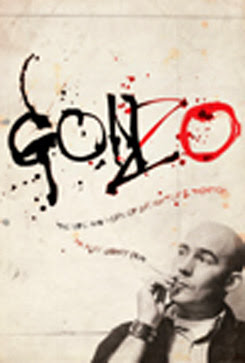
Earlier this summer, I hung out a bit with Robert Scheer and his wife, Narda Zacchino. We talked about
Ramparts, mostly, and had a few dinners, including a tasty one at Chez Panisse. (As it turns out, Alice Waters worked on his remarkable 1966 run for Congress.) That same week, I attended two talks about his new book,
The Pornography of Power: How Defense Hawks Hijacked 9/11 and Weakened America. Before I say anything about the book itself, let's consider Scheer's decision to focus on this topic. I don't hear many other people calling attention to the military budget right now. For this year alone, that's $506.9 billion, plus the two "supplementary" appropriations for the occupations of Iraq and Afghanistan. Those came to $197 billion. So we're looking at $700 billion plus for 2008. That's a lot of hot dogs, people. In fact, it's most of our discretionary hot dogs. For every ten dollars the federal government spends on non-mandatory items, six go to the military.
The result? We spend as much on the military as the rest of the world combined. But when Congress proposed a $7 billion expansion for children's health insurance, President Bush vetoed it, saying it was too expensive. (He wanted a $1 billion expansion of the program.)
One could make a lot of partisan hay out of this issue. Mean old President Bush! Why does he hate the babies? That may be as close as we'll get to a critical debate about our national priorities. But as Scheer points out in the book, the runaway military budget is a bipartisan creature. Even Bush's staunchest critics (e.g., Barbara Boxer) fight to retain programs for stuff nobody needs--in Boxer's case, cargo planes produced in Long Beach. The "defense" budget has been disconnected from any rational discussion of our actual defense needs. Now it's almost exclusively about bringing home the bacon.
Well, you say, don't we want a strong defense? It's dangerous out there! Yeah, I want a strong defense, especially one that has something to do with actual and potential threats. But I also want roads, schools, hospitals, and all the other stuff we've been trained not to expect anymore because, like health insurance for poor kids, it's too expensive.
This little home truth doesn't really count as news anymore, but Scheer makes a strong case that it's disfiguring our national politics anyway. "War doesn't pay," he concludes, "nor does imperial ambition." He dedicates the book to two great Americans--Dwight Eisenhower and George McGovern--who shared that view.
Having just returned from Washington DC, I wonder why this view doesn't cut more ice there. Is it because its causes are so blindingly obvious and seemingly irresistible? If so, does it help to be a little farther away from it, a little less inured to business as usual in DC?
With this book, one could argue, Scheer is reprising a role he played during the Vietnam era, when he challenged the lies and nonsense that led us into that regrettable conflict. His reporting helped propel the success of
Ramparts, but many experienced people could have told that story.
This summer, I asked Warren Hinckle why he thought
Ramparts was so successful. "Probably because the other places were so shitty," he replied. As I watch the presidential campaign coverage this season, with its breathless discussion of lapel pins and fist bumps, I think of Hinckle--and Scheer.










































